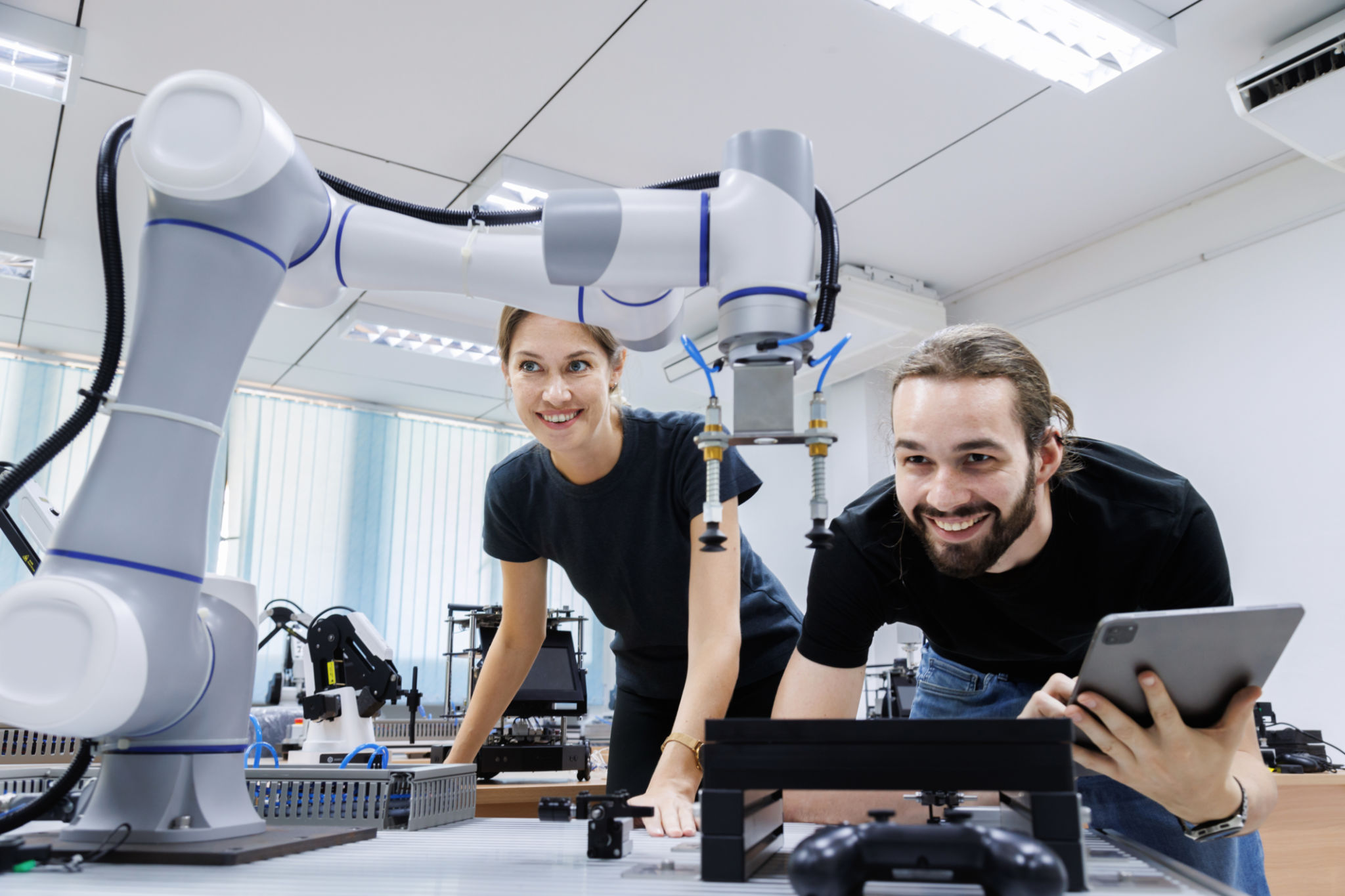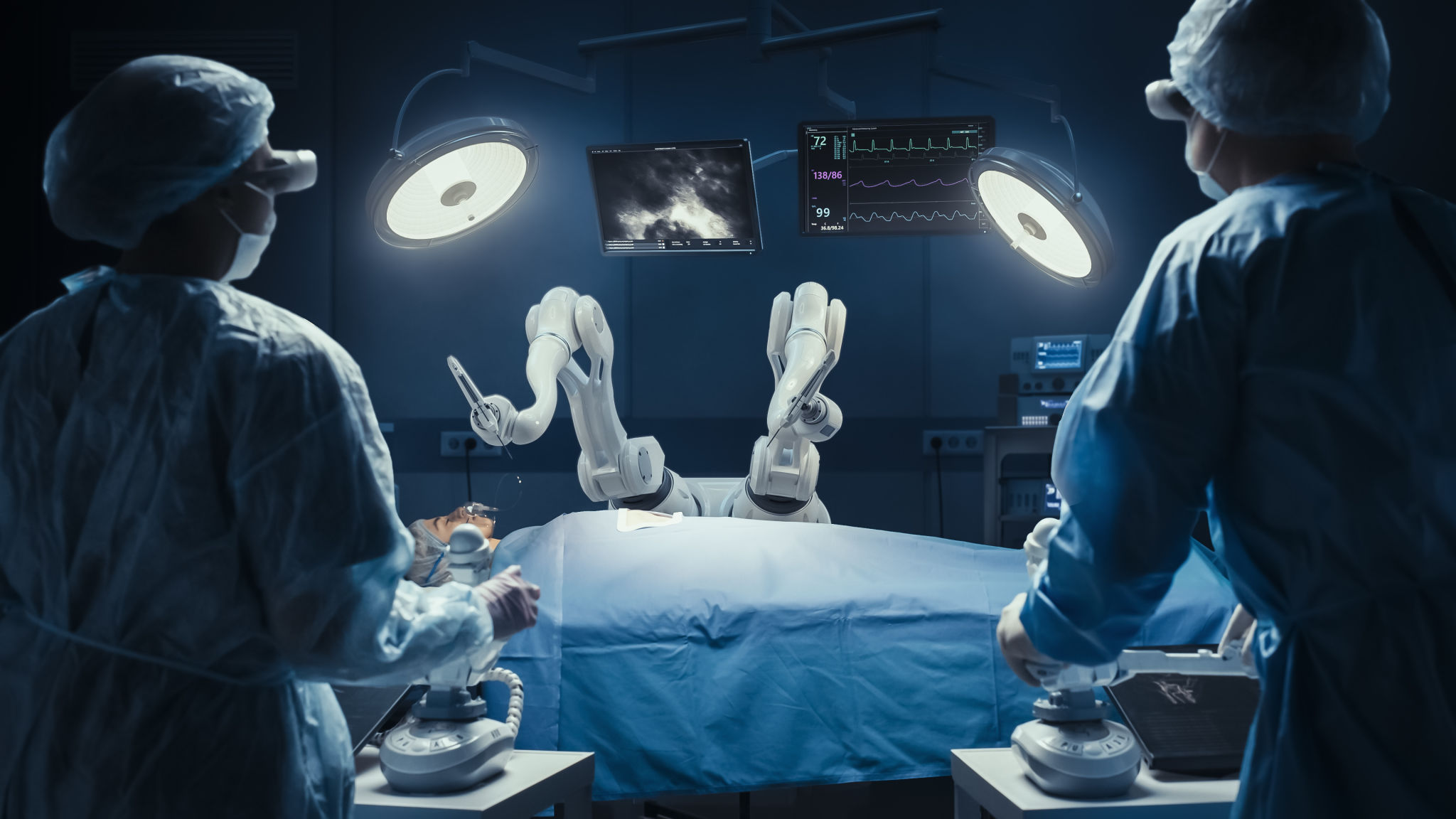The Future of Work: How Robotics is Changing Industries
The Rise of Robotics in the Workplace
The integration of robotics into the workplace is no longer a futuristic concept; it is a current reality reshaping industries across the globe. As technology advances, robots are becoming more sophisticated, capable of performing tasks that were once considered solely within the realm of human capability. This shift is not merely about automation but about enhancing productivity and efficiency in ways previously unimaginable.
With robots handling repetitive and mundane tasks, human workers can focus on more complex and creative endeavors. This synergy between human intelligence and robotic precision is paving the way for groundbreaking innovations and business models. Industries such as manufacturing, healthcare, and logistics are already witnessing significant transformations driven by robotics.

Transforming Manufacturing
In the manufacturing sector, robotics has revolutionized production lines. Robots are employed for tasks such as assembly, welding, and painting, operating with speed and precision that greatly exceed human capabilities. This not only reduces production time but also minimizes errors, leading to higher quality products.
Moreover, robots are equipped with advanced sensors and AI technologies, allowing them to learn and adapt to new tasks with minimal human intervention. This adaptability is crucial for manufacturers looking to customize products and respond swiftly to market demands. The result is a more agile production process that can keep pace with the fast-changing landscape of consumer needs.
Healthcare Innovations
In healthcare, robotics is making significant strides in improving patient care and operational efficiency. Surgical robots are being used to perform complex procedures with high precision, reducing recovery times and improving patient outcomes. Similarly, robotic systems assist in diagnostics and patient monitoring, ensuring timely interventions when needed.

Furthermore, robots are increasingly used in rehabilitation therapy, helping patients regain mobility and independence through personalized exercises. These advancements not only enhance the quality of care but also alleviate the workload of healthcare professionals, allowing them to focus on patient interaction and decision-making.
Enhancing Logistics and Supply Chain
The logistics industry is another area where robotics is making a substantial impact. Automated guided vehicles (AGVs) and drones are now commonplace in warehouses, optimizing inventory management and order fulfillment processes. These technologies enable round-the-clock operations, significantly improving efficiency and reducing costs.
Additionally, robotics in logistics leads to enhanced accuracy in tracking shipments and managing supply chains. With real-time data analytics, businesses can make informed decisions quickly, minimizing disruptions and ensuring seamless operations. As e-commerce continues to grow, the role of robotics in logistics will only become more critical.

The Workforce of Tomorrow
As robotics becomes more entrenched in various industries, the workforce dynamic is inevitably shifting. While there are concerns about job displacement, robotics also creates new opportunities for employment in fields such as robot maintenance, programming, and AI development. Education and training programs are evolving to equip workers with the skills needed for these emerging roles.
Moreover, the collaboration between humans and robots is fostering a new era of innovation. Businesses are reimagining their organizational structures to leverage both human creativity and robotic efficiency. This collaboration promises to drive growth and competitiveness in an increasingly globalized market.
In conclusion, the future of work is poised for transformation as robotics continues to evolve. By embracing these changes, industries can unlock unprecedented potential, creating a more dynamic and prosperous world of work for future generations.